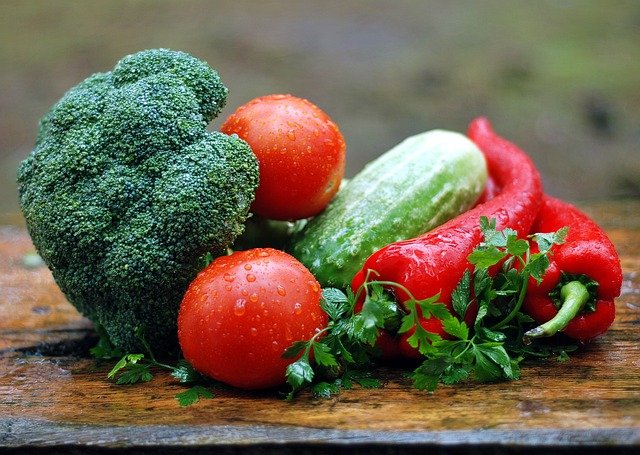What are the most toxic vegetables? Have you ever heard of the “toxic vegetables”? Yes? No?
Well, this post discusses 8 toxic vegetables that most people consume on a regular basis.
These foods are classified as toxic due to the high levels of toxins, anti-nutrients, dietary fiber, and sugar that can have adverse health effects, particularly when consumed in high doses.
To get started, let’s take a look at those toxic vegetables that are bad for you and why.
1. Cassava
Cassava is one of the starchy root vegetables that people eat all over the world.
You can find it in African, Asian, and South American countries, and it’s a great source of carbs and other nutrients.
According to a Journal of Food Composition and Analysis, cassava root contains a dangerous compound called cyanide, so make sure you cook it properly to get rid of it and make sure it’s safe to eat.
2. Rhubarb Leaves
According to research published in JAMA by Henry Leffmann, M.D., Rhubarb plant leaves are toxic due to their high oxalic acid content, which can lead to renal failure and other health issues if consumed in large amounts.
Therefore, it is recommended to discard the rhubarb leaves and consume only the stalks of the plant, which are commonly used as a topping for pies and other desserts.
3. Spinach and Swiss Chard
In a study review, both spinach and Swiss chard contain high levels of oxalic acid. Oxalic acid disrupts calcium absorption and other essential minerals.
These vegetables are generally safe to consume in small amounts, but people with kidney disease or kidney stones should limit their intake.
4. Raspberries and Blueberries
These berries are super popular with insects, and the fruit is so small that it can easily fall off the bush.
The berries are soaked in fertilizer to help them grow and stay strong, and they’re also treated with a special mix of pesticides to stop the bugs from eating them.
5. Mushrooms
Mushrooms found in supermarkets are generally harmless to humans, except for those with a hypersensitivity reaction to fungi. However, some individuals enjoy foraging in forests and other areas for wild mushrooms.
The majority of mushroom-related fatalities occur when humans consume the death cap mushroom,
Ammonia phalloides, or destroy angel mushrooms by mistake. If one is not an expert in identifying wild mushrooms, one should be cautious and avoid putting anything in their mouth.
6. Nightshade Vegetables
Nightshade vegetables, such as:
- Tomatoes,
- Potatoes,
- Eggplants, and
- Peppers.
They contain a chemical called solanine.
According to NCBI, solanine can be toxic in large quantities and can cause symptoms such as nausea, vomiting, and diarrhea.
However, the levels of solanine in nightshade vegetables are generally low, and most people can consume them safely.
7. Bitter Melon
Bitter melon or bitter gourd is a vegetable widely consumed in Asian cuisine. It has a wide range of health benefits, including the ability to reduce blood sugar levels.
However, in certain circumstances, it can be detrimental to health.
According to an Asian Journal of Chemistry, the presence of a compound known as charantin in bitter melon can lead to low blood sugar and other adverse reactions if consumed in large amounts.
8. Fiddlehead Ferns
Fiddlehead Ferns are a popular culinary delicacy in certain regions of the world; however, they can also be a source of toxicity.
According to research conducted by the National Cancer Institute, Bethesda, Maryland, Fiddlehead Ferns contain a toxin known as thiaminase which can inhibit the absorption of thiamine (a vitamin B1) into the body, resulting in symptoms of nausea, vomiting, and dizziness.
Therefore, it is essential to cook fiddlehead Ferns thoroughly before consumption.
The Power of Knowledge
It is important to remember that although these vegetables have their drawbacks, they also provide many health benefits.
They say, “Everything is in moderation”, but it is important to understand your body and be aware of any adverse reactions.
So, don’t let the dark side of the vegetable world get the better of you. Enjoy them and enjoy their flavors. But always be aware that they have the potential to mess with your health.
A Word From GetMe Treated
That is all for now. Let’s go ahead and enjoy our next meal with a little more caution and a bit of humor.
Knowledge is power, and when it comes down to it, it’s the power to resist the dark forces that lurk within the innocuous-looking vegetables.
FAQs Related To What Are The Most Toxic Vegetables
What is the vegetable to avoid?
- Asparagus
- Broccoli
- Brussels sprouts
- Cabbage
Which vegetable was considered poisonous?
Tomatoes
Which vegetables Cannot be eaten raw?
- Potatoes
- Cruciferous Vegetables
- Red Kidney Beans
- Mushrooms
- Eggplant
- French Beans
Which fruit has poisonous seeds?
- Peaches
- Apricots
- Cherries
- Plums
Are tomato seeds poisonous?
Consuming tomatoes with seeds at a moderate level will not affect your health
What happens when you eat too many vegetables?
As a result, you will suffer from digestive issues such as:
- Digestive discomfort
- Gas
- Bloating
- Constipation
Are cucumbers healthy?
Cucumbers can help you lose weight, stay hydrated, regulate your digestion, and lower your blood sugar levels.
Other Helpful Blog Posts:
- 10 Surprising Health Benefits of Bitter Leaf
- Natural Slim Metabolic Vitamins
- Diet Plans To Lose Weight For Women
- 12 Food Combinations That Are Bad For Your Health
- Scientists Reveal What To Eat According To Blood Type
- Foods That Cause Blood Sugar To Rise
- What Are The Best Foods To Treat Scurvy?

